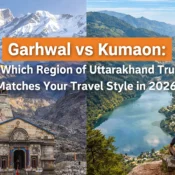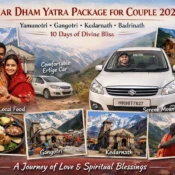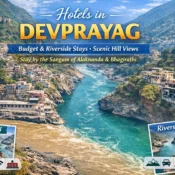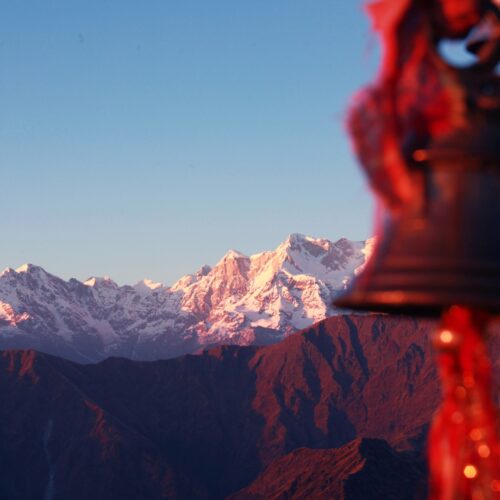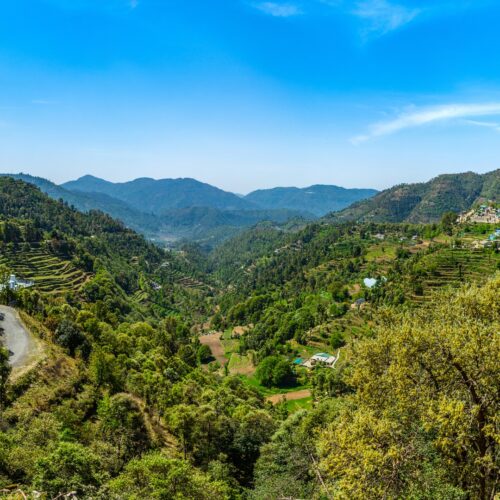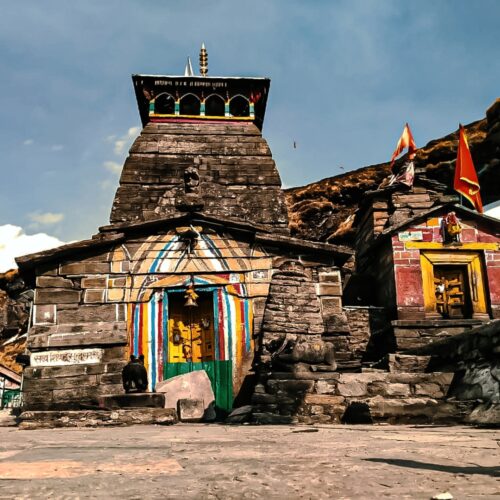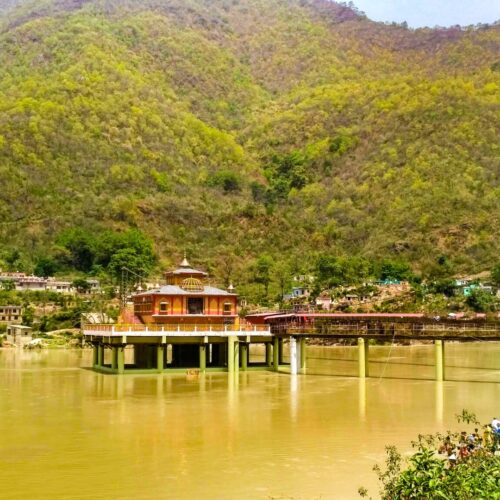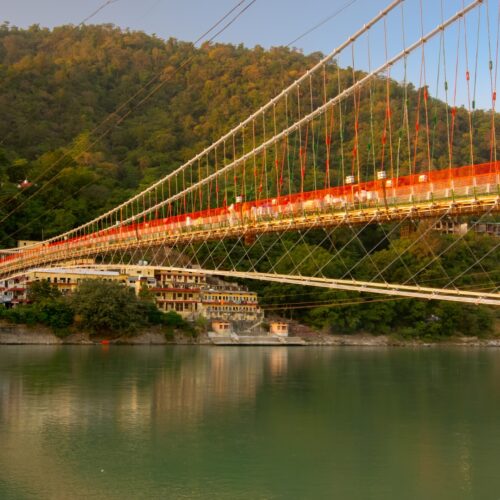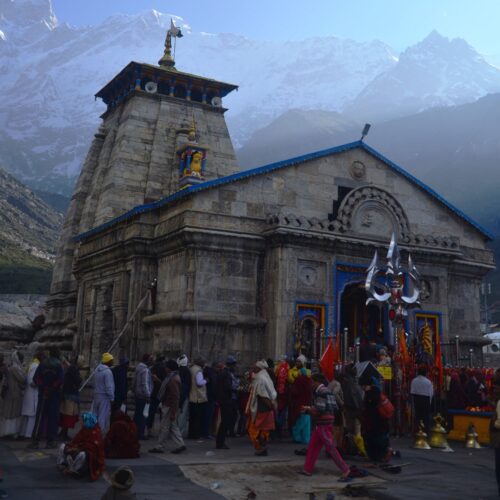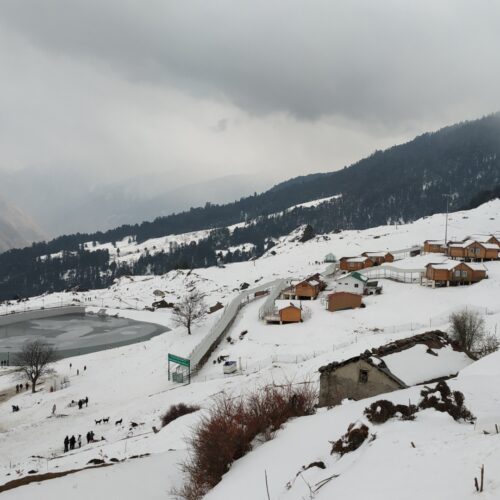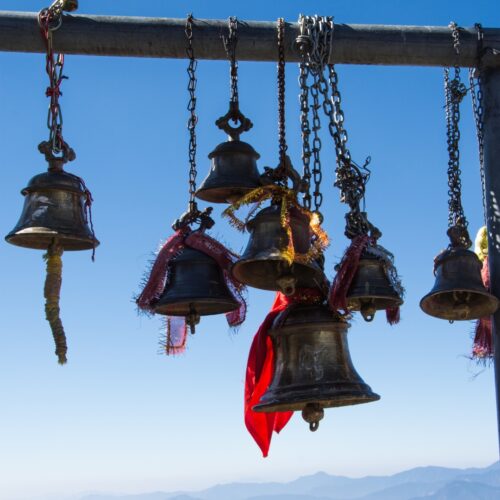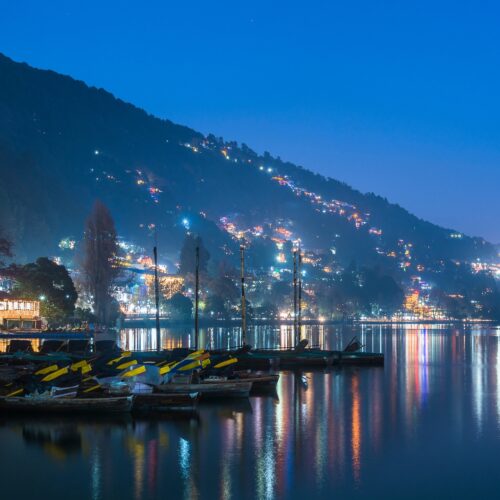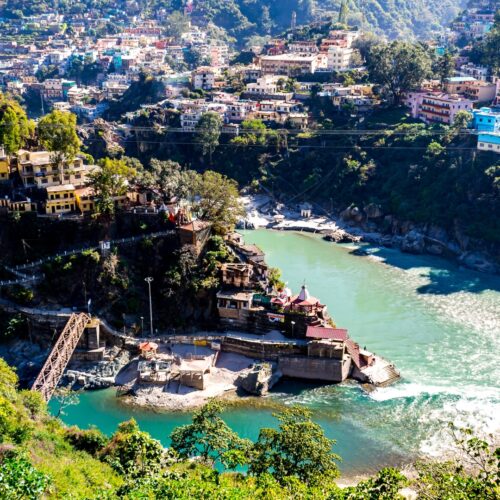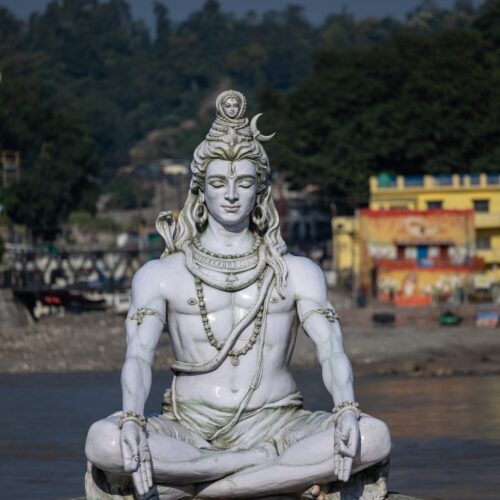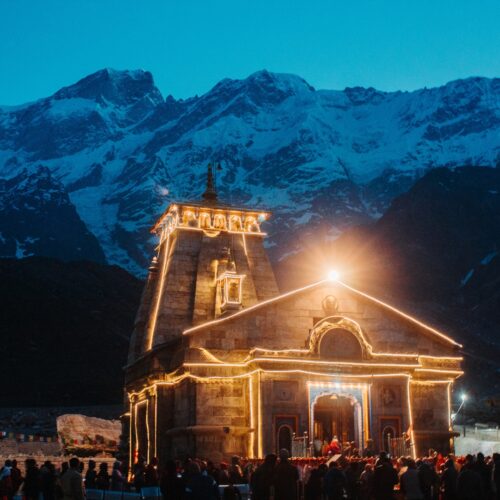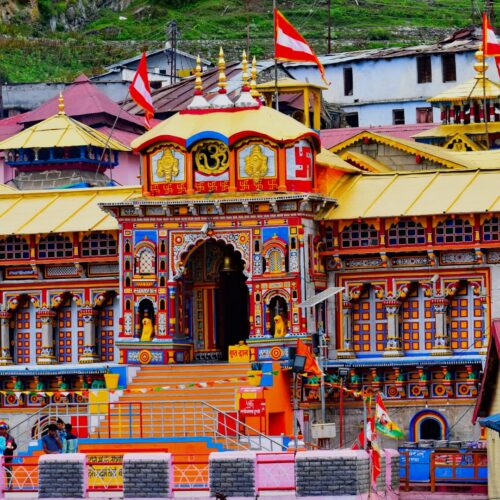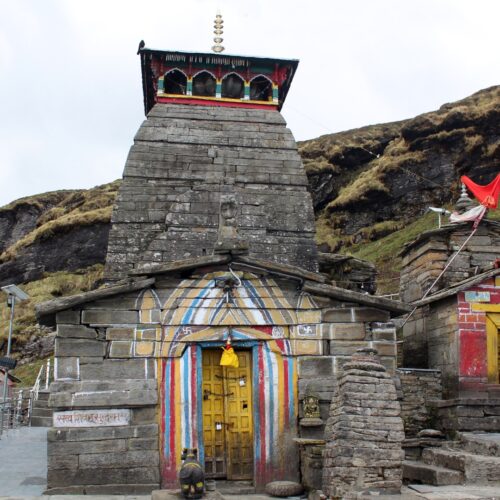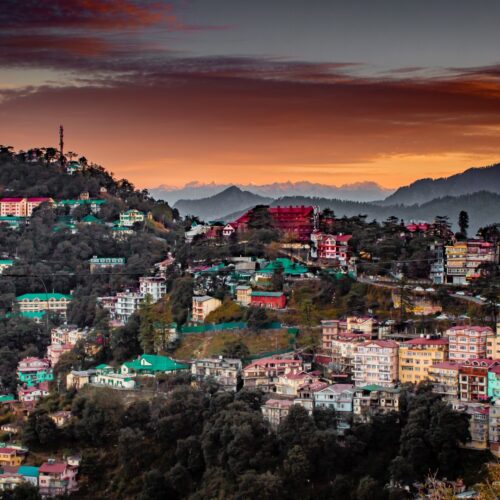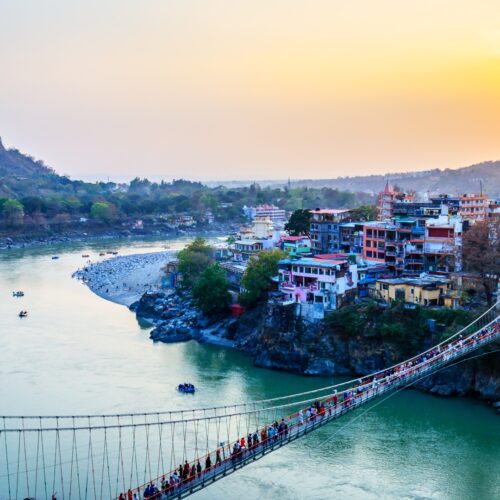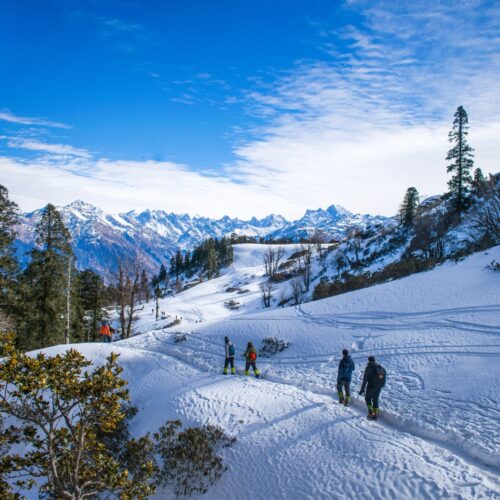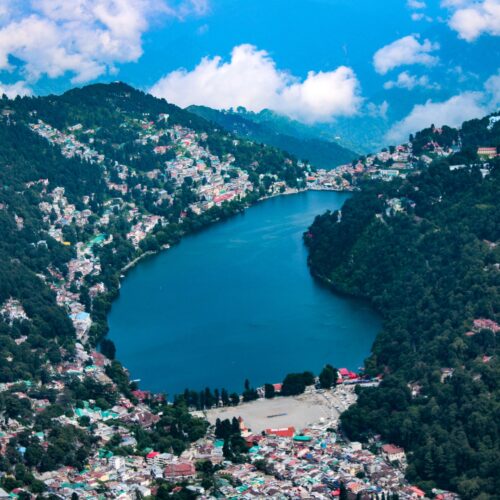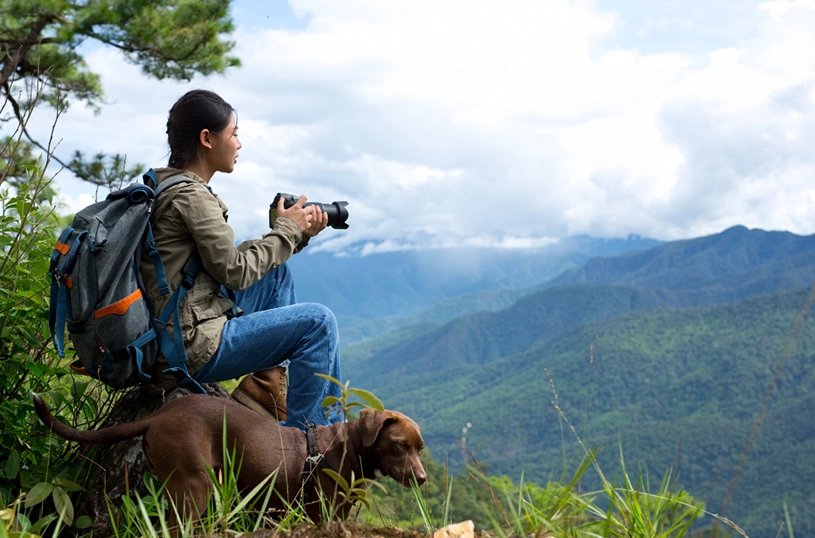
Winter Tour Package of Uttarakhand | Rishikesh, Chopta, Tungnath, & Kartik Swami
Introduction — When the Himalaya Calls in Winter
Winter in Uttarakhand is not just a season — it is a poem whispered by rivers, sung by snowy peaks, and carried in the stillness of pine forests. This journey takes you beyond ordinary sightseeing: rafting in Rishikesh, walking the snowy meadows of Chopta, seeking blessings at Tungnath — the world’s highest Shiva temple, touching the skies from Chandrashila summit, and ending with the divine silence of Kartik Swami Temple on a ridge above the clouds.
This is a tour where adventure bows to spirituality, and spirituality dances with adventure. A journey crafted with love, only for travelers who want to feel the mountains, not just see them.
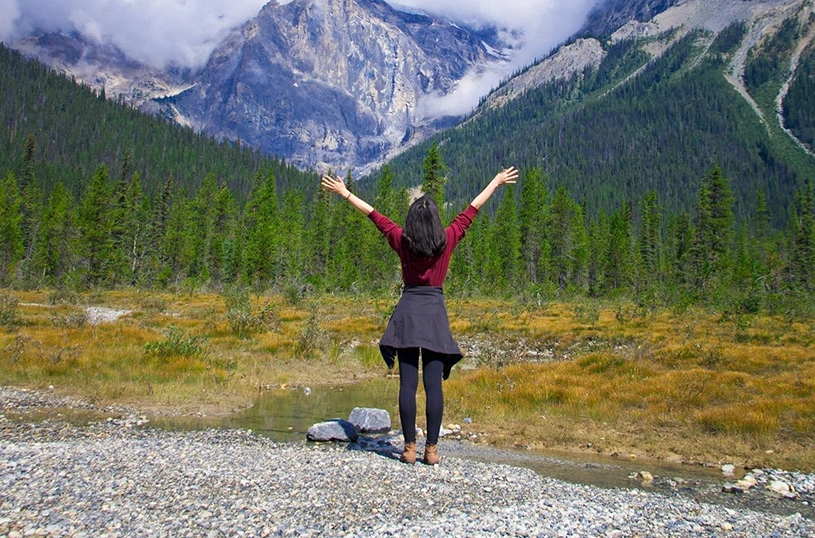
Uttarakhand Winter Package – Quick Tour Highlights
Duration: 5 Days / 4 Nights
Best Season: December – March (snow charm)
Destinations Covered: Rishikesh, Devprayag, Sari, Chopta, Tungnath, Chandrashila, Kartik Swami, Rudraprayag
Experiences:
Ganga Aarti & river rafting in Rishikesh
Sangam darshan at Devprayag
Trek to crystal-clear Deoria Tal
Hike to Tungnath Temple & Chandrashila Peak
Ridge-top blessing at Kartik Swami Temple
Village stays & local Garhwali flavors
Explore our Chopta Tour Packages
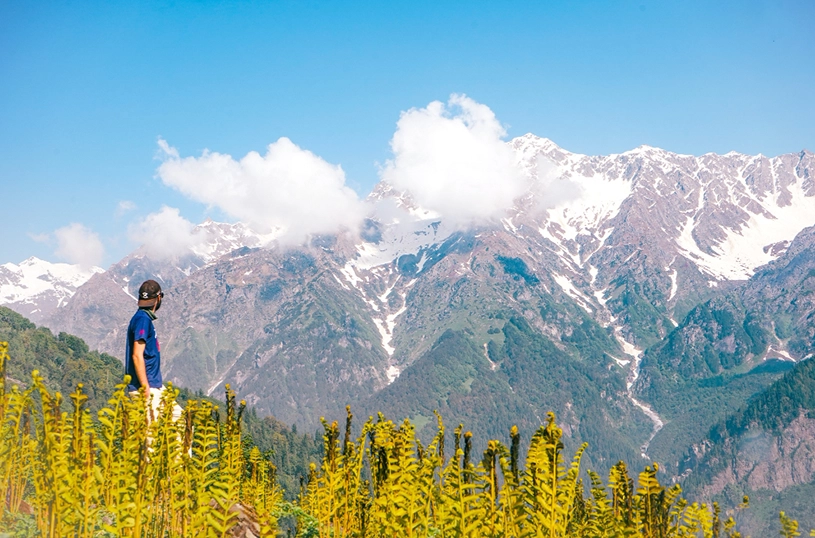
Day-Wise Itinerary
Day 1 — Rishikesh: River, Spirit & Lamp
Your winter story begins in Rishikesh, the “Gateway to the Himalayas.” After settling in, step into adventure with a short session of rafting — the icy Ganga splashes will wake your soul like no alarm ever could. Later, walk across the Ram Jhula, sip ginger tea in riverside cafes, and by sunset, take your place at Parmarth Niketan Ghat.
As the Ganga Aarti begins, hundreds of diyas float over the river — the scene feels less like a ritual and more like the universe whispering: “You are exactly where you should be.”
Day 2 — Rishikesh → Devprayag → Sari → Deoria Tal
Leave behind the plains, and the road curves into the Himalayas. Midway, stop at Devprayag, where the Bhagirathi and Alaknanda merge into the Ganga. The waters here are two colors — turquoise and emerald — meeting like old friends.
By evening, you reach Sari Village, the gateway to Deoria Tal. A short uphill trek (about 2 km) brings you to the still lake, reflecting the mighty Chaukhamba peaks. In winter, the water shimmers under thin ice — a mirror held by the gods themselves.
Stay overnight in a cozy village homestay, warmed by local food and stories around a fire.
Day 3 — Sari → Chopta → Tungnath → Chandrashila → Sari
Wake early, drive to Chopta, a meadow blanketed in white during winter. Begin the trek to Tungnath, the highest Shiva temple in the world, where silence feels like prayer. The temple, surrounded by snow and sky, has seen centuries of pilgrims — today, it waits for you.
If weather smiles, climb further to Chandrashila Summit. At nearly 3,700 m, this ridge offers a view of the great Himalayan wall — Nanda Devi, Chaukhamba, Kedarnath, Trishul. Standing here, with wind singing and snow crunching under your feet, is not a sight — it is a lifetime moment.
Return to Sari by evening. Rest with stars glittering above village rooftops.
Day 4 — Sari → Kartik Swami → Rudraprayag
Today the journey takes a sacred turn. Drive towards Rudraprayag, then trek up to Kartik Swami Temple, perched high on a narrow ridge. Dedicated to Lord Kartikeya, the temple offers an ocean of peaks in every direction — golden at sunrise, silver at moonrise. The marble idol of Kartikeya feels alive when winds whistle through the bells.
Return to Rudraprayag for overnight stay. Evening walk by the Alaknanda river makes the day complete.
Day 5 — Rudraprayag → Rishikesh (Optional Bungee)
On your return, stop near Shivpuri for an optional thrill — India’s iconic 83-metre bungee jump. Feel gravity pull, then release, like the mountains reminding you that life is meant to be lived fully.
By evening, you are back in Rishikesh. Your winter journey closes not with an end, but with a quiet promise: “You will return.”
Explore our Kuari Pass Trek Package
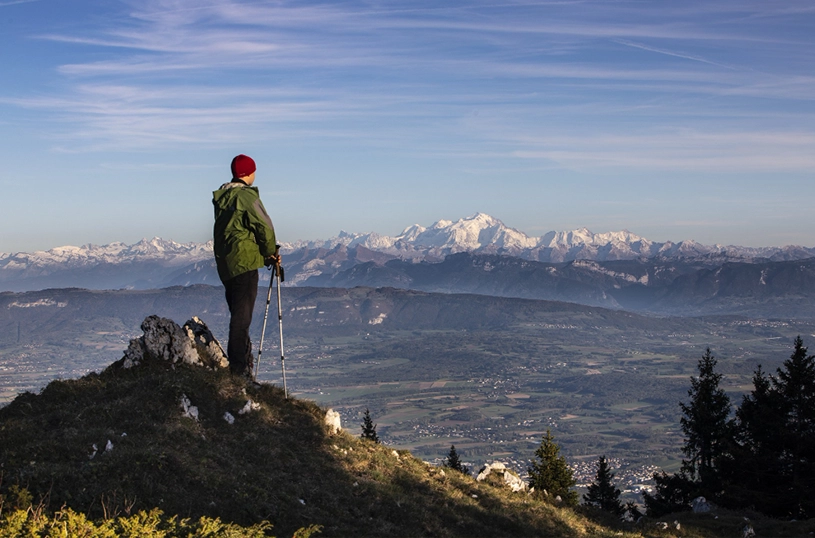
Why Choose This Tour?
Perfect balance of adventure & spirituality
Small treks — doable even for beginners
Carefully designed winter-safe stays
Handpicked drivers, guides & local support by Travelophila
Opportunities for photography, cultural experiences, and self-reflection
Weather & Best Time
Winter snow: Dec–Feb (carry warm layers, thermals, gloves)
Milder winter walks: Oct–Nov & Mar–Apr
Rafting: Year-round, but water is cold in Jan–Feb (wetsuits provided)
What to Pack
Thermals, insulated jacket, woollen cap & gloves
Trekking shoes with grip (snow spikes if available)
Sunglasses, sunscreen, moisturizer, lip balm
Water bottle (insulated), headlamp, power bank
Small medical kit (basic medicines)
Camera / phone for memories (with power backup)
Food to Relish
Garhwali Aloo ke Gutke
Madua Roti with Ghee
Bhang ki Chutney (unique local flavor)
Warm thukpa and mountain tea
Responsible Travel
Carry reusable bottles, avoid plastic.
Respect temple customs (cover shoulders, silence during puja).
Support local homestays & handicrafts.
Walk light, leave no trace.
Photography Tips
Deoria Tal: reflections at dawn
Chandrashila: wide-angle sunrise capture
Kartik Swami: silhouettes at sunset
Use natural captions — “A morning where sky bowed to the peaks.”
Brahmatal Trek Package
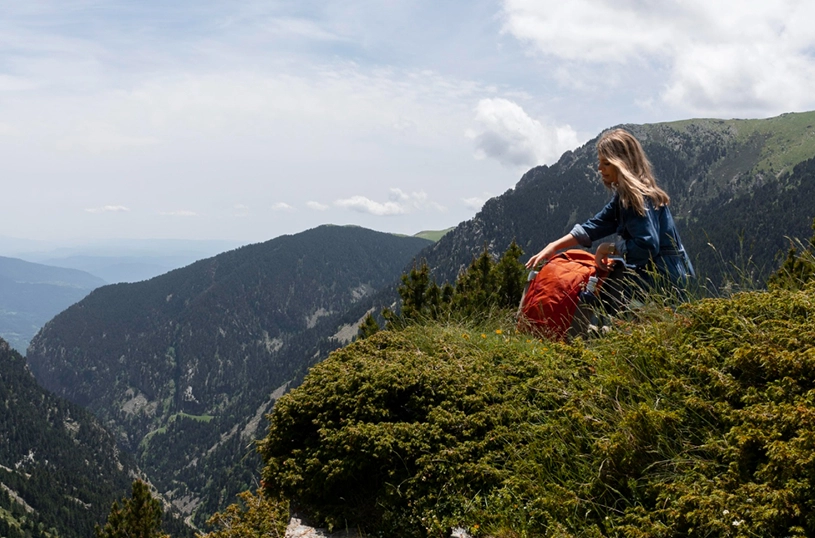
Frequently Asked Questions About Winter Uttarakhand Tours
Q1. Is winter a good time to visit Chopta, Tungnath, and Kartik Swami?
Absolutely yes! Winter turns Chopta, Tungnath, and Kartik Swami into a white wonderland. The snow-blanketed trails, quiet pine forests, and sparkling skies create a dreamlike atmosphere. Unlike the summer rush, winter offers peace, serenity, and a chance to connect deeply with the Himalayas. If you wish to witness Uttarakhand in its raw, untouched beauty—winter is the best time.
Q2. How difficult is the Tungnath–Chandrashila trek in winter?
The Tungnath–Chandrashila trek is considered moderate, but snow adds an adventurous touch. Trails become slippery, and cold winds can test your endurance. However, with proper gear—like sturdy shoes, trekking poles, and warm layers—the trek is safe and achievable. Beginners with average fitness can attempt it with guidance, and the reward is the spellbinding 360° view of the Himalayan peaks.
Q3. Can I attend rafting in Rishikesh during winters?
Yes, you can! Rafting in Rishikesh runs even in winters, and it’s an exhilarating experience. The water is definitely cold, but wetsuits and safety gear are provided to keep you comfortable. The thrill of rafting through icy currents while the Himalayan sun warms you is an adventure few forget.
Q4. Is bungee jumping in Shivpuri safe?
Absolutely. Bungee jumping in Shivpuri is conducted by certified professionals who follow international safety standards. The equipment is top-notch, and regular checks are done for security. The adrenaline rush of leaping into the winter air, surrounded by hills and rivers, is unmatched.
Q5. What makes Kartik Swami Temple special?
Kartik Swami Temple is one of the rare temples in North India dedicated to Lord Kartikeya, son of Lord Shiva. Perched high at about 3,000 meters, it feels like the temple touches the skies. The 360° view of snow-draped mountains from the temple is divine. It’s not just a temple; it’s a journey of faith, serenity, and breathtaking beauty.
Q6. Can beginners do the Deoria Tal trek in winter?
Yes, Deoria Tal is perfect for beginners even in winter. The trek is just 2.5 km and takes around 1.5–2 hours. Snow makes it magical, as the frozen lake mirrors the mighty Chaukhamba peaks. It’s safe, simple, and rewarding—ideal for families, kids, and first-time trekkers.
Q7. What clothing should I carry for this trip?
For a winter trip, pack like you’re preparing for a Himalayan hug. Carry insulated jackets, thermal inners, woollen gloves, caps, mufflers, and waterproof trekking shoes. Layering is key—so that you can adjust with changing temperatures. Don’t forget sunglasses and sunscreen, as snow reflects sunlight strongly.
Q8. Will there be snow during December–January?
Yes, heavy snowfall is common in Chopta, Tungnath, and higher regions during December and January. The snow can be knee-deep at times, making the scenery enchanting. If your dream is to walk on soft snow and witness frozen forests, this is the perfect season.
Q9. Are hotels open in Chopta during winters?
Most hotels in Chopta close in peak winter due to heavy snowfall. However, comfortable stays are available in nearby villages like Sari, Ukhimath, or Duggalbitta. You can still enjoy warm rooms, traditional food, and a cosy atmosphere while exploring the snowy outdoors.
Q10. Can children join this tour?
Yes, children can be part of this journey. The easy treks like Deoria Tal are suitable for them. For Tungnath and Kartik Swami, kids above 8 years with basic stamina can manage. Parents should keep warm clothing ready and allow plenty of breaks. Watching kids play in Himalayan snow is pure joy!
Q11. How far is Rishikesh from Haridwar?
Rishikesh is just 25 km away from Haridwar, about a 40-minute drive. Both towns are spiritually rich, but Rishikesh is more adventure-oriented with rafting, yoga centres, and cafes, while Haridwar shines with Ganga Aarti and temples.
Q12. What are Prayags in Uttarakhand?
“Prayag” means the confluence of rivers. In Uttarakhand, Prayags are sacred meeting points of rivers that later form the holy Ganga. On this tour, you’ll visit Devprayag, where the Alaknanda and Bhagirathi merge to become the Ganga. Each Prayag has deep mythological and cultural significance.
Q13. Which is tougher, Tungnath or Kartik Swami trek?
Both treks are unique. Tungnath–Chandrashila is longer (around 5 km uphill) but gradual. Kartik Swami is shorter (3 km) but quite steep. If you love steady climbs with panoramic rewards, Tungnath is ideal. If you prefer a quick but intense climb to a divine temple, Kartik Swami is perfect.
Q14. Is mobile network available in Chopta & Sari?
Yes, but limited. Jio and BSNL work the best in these regions. However, internet connectivity is weak and sometimes unavailable. Instead of worrying about signals, let the silence of nature connect you with yourself.
Q15. What local food can we try on this tour?
Winter in Uttarakhand is incomplete without its mountain flavours. Try Aloo ke Gutke (spicy potato dish), Madua Roti (millet bread), Phaanu (lentil curry), Chainsoo, and sweet Jhangora ki Kheer. These dishes not only warm your body but also give you the real taste of Garhwal.
Q16. Why is Dhari Devi Temple called guardian deity?
Locals believe Maa Dhari Devi is the protector of Uttarakhand. Legends say that whenever her idol is moved from its place, disasters strike the region. Situated in the middle of the Alaknanda River, the temple holds divine energy and is worshipped as the state’s guardian spirit.
Q17. Is this tour suitable for elderly people?
Yes, elderly travellers can enjoy most parts of this tour. Sightseeing, temples, and scenic drives are comfortable. However, treks like Tungnath and Kartik Swami can be difficult. Ponies, palanquins, or extra assistance can be arranged to make the journey easier for seniors.
Q18. What kind of vehicle is used?
Depending on group size, comfortable private vehicles are provided—like Swift Dzire for couples, Innova for small families, and Tempo Traveller for larger groups. All vehicles are clean, well-maintained, and driven by experienced drivers familiar with mountain roads.
Q19. Can we extend the tour to Kedarnath or Badrinath?
Yes, absolutely. The itinerary can be customized to include Kedarnath or Badrinath Dham. If weather conditions allow, winter Darshan of these shrines is a life-changing experience. Our team can plan the extension as per your time and preference.
Q20. Why choose Travelophila for this winter tour?
Because Travelophila is more than a travel agency—we are storytellers of journeys. We combine local expertise with heartfelt hospitality. From arranging cosy stays to guiding treks with safety, we ensure every traveller feels at home in the Himalayas. With us, your winter trip isn’t just a holiday—it’s a memory carved in snow and soul.
The Travelophila Promise
We are not just travel planners — we are mountain children at heart. With handpicked stays, experienced local drivers, and 24/7 support, we ensure your trip feels less like a package and more like a homecoming to the Himalayas.
📞 Call/WhatsApp: +91 93686 79124
🌐 Travelophila — Where Journeys Become Memories
Explore our Kuari Pass Trek Package
| Attribute | Details |
|---|---|
| Destination | Rishikesh, Uttarakhand |
| Best Time (Winter) | November – February (pleasant & cool weather, 8°C–20°C) |
| Activities | Yoga, Meditation, Ganga Aarti at Triveni Ghat, Adventure sports (rafting, bungee jumping, zipline) |
| Nearby Attractions | Ram Jhula, Laxman Jhula, Beatles Ashram, Neer Garh Waterfall, Rajaji National Park |
| Suggested Stay | Ashrams near Ganga ghats, boutique hotels, or riverside camps |
| How to Reach | By Air: Dehradun Jolly Grant Airport (35 km) By Train: Haridwar Railway Station (25 km) By Road: NH7 from Delhi (~6 hrs drive) |
| Travel Tips | Carry light woolens, comfortable walking shoes, and keep time for sunrise/sunset at Ganga ghats |
Top Travelophila Packages:
Chardham Yatra Packages 2025
Chopta Auli Tour Packages
Nainital Mussoorie Tour Packages
Trekking Packages

Ghanshyam Das is an experienced travel author and destination storyteller known for his rich, detail-oriented writing about India’s diverse landscapes. With years of exploration across the Rajasthan Himalayas, sacred towns, wildlife regions, and cultural heartlands, Ghanshyam creates travel content that blends personal experiences with practical, well-researched guidance.
His storytelling revolves around real journeys — meeting locals, exploring hidden gems, discovering unique traditions, and capturing the essence of every place he visits. Whether writing about road trips, nature escapes, spiritual trails, or lesser-known destinations, Ghanshyam aims to inspire readers to travel deeper and experience India beyond the usual tourist routes.
He strongly believes that travel opens the mind and connects people, and this philosophy is reflected in every article he writes.
Based in: India
Expertise: Mountain Travel • Spiritual Tourism • Cultural Exploration • Offbeat Adventures
Approach: Authentic, experiential, research-based
Philosophy: “Travel is more than movement — it’s understanding life from new perspectives.”

